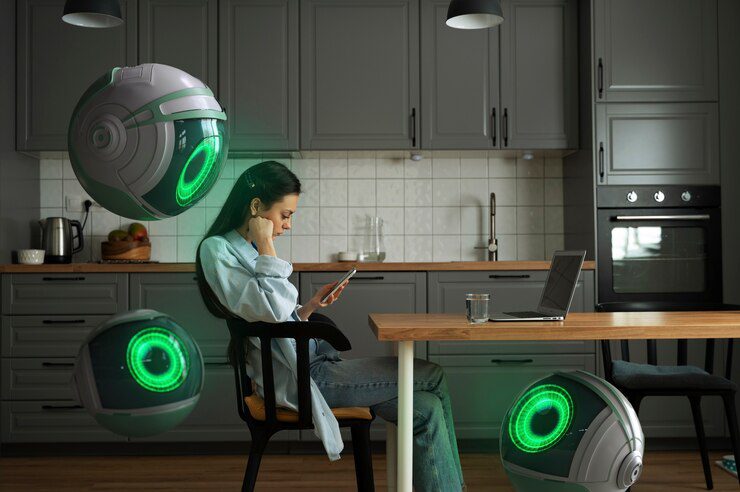Remember those Jetsons cartoons where robots whipped up breakfast and Rosie the maid kept the house spotless? Well, guess what? Thanks to the ever-evolving field of artificial intelligence (AI), that futuristic vision is no longer just the stuff of science fiction.
AI has silently woven itself into the fabric of our daily lives, from the moment you hit snooze on your smart alarm to the personalized recommendations popping up on your social media feed. But how did we get here? Let’s take a trip down memory lane and explore the fascinating evolution of artificial intelligence.
Early Days: Planting the Seeds of Intelligence
For centuries, humanity has been captivated by the idea of intelligent machines. Early philosophical musings and fictional tales laid the groundwork for the scientific exploration of artificial intelligence. In the 1940s, the term “artificial intelligence” was officially coined by Alan Turing, who proposed the Turing test – a benchmark for a machine’s ability to exhibit intelligent behavior equivalent to, or indistinguishable from, that of a human.
The Rise of the Machines (…Kind Of)
The following decades saw significant advancements in artificial intelligence. The invention of computers and the development of algorithms like machine learning fueled progress. Early AI applications focused on solving specific problems, such as game playing (think Deep Blue conquering chess grandmaster Garry Kasparov) or pattern recognition.
The Age of Machine Learning: Learning on the Fly
Machine learning, a subfield of artificial intelligence, became a game-changer. Machine learning algorithms can learn from data without being explicitly programmed, allowing them to adapt and improve over time. This opened doors for a whole new generation of AI applications, from facial recognition software to spam filters in your email.
AI Today: Where We Are and Where We’re Headed
Today, artificial intelligence is everywhere. It powers the virtual assistants that answer your questions on your phone (Siri, anyone?), analyzes your fitness tracker data, and even personalizes the content you see online. AI is also making waves in industries like healthcare, finance, and transportation, with applications ranging from medical diagnosis to self-driving cars. AI and cloud computing synergize to revolutionize industries by leveraging vast computational power and data storage capabilities to enhance efficiency and innovation.
The Future of AI: A Glimpse into the Crystal Ball
The future of artificial intelligence is brimming with both possibilities and challenges. We can expect AI to become even more sophisticated, tackling complex tasks and potentially surpassing human capabilities in certain areas. However, ethical considerations around job displacement, privacy concerns, and the potential for misuse of AI require careful attention.
Therefore, what implications does this have for you and me?
Artificial intelligence is here to stay, and it will continue to reshape our everyday lives in profound ways. The key is to embrace the positive advancements while remaining vigilant about potential drawbacks. By fostering responsible development and utilizing AI for good, we can create a future where humans and machines work together to build a better world.
Here are some ways AI might continue to evolve and impact our lives:
Hyper-personalized experiences: Imagine a world where everything from your shopping recommendations to your learning environment is tailored to your unique needs and preferences.
The rise of intelligent automation: Repetitive tasks could become a thing of the past, with AI handling everything from customer service to data analysis.
The dawn of the “augmented human”: AI could be used to enhance human capabilities, from cognitive assistance to physical augmentation.
Conclusion
In conclusion, the evolution of artificial intelligence has woven a web of intelligence into the very fabric of our daily lives. From the virtual assistants that streamline our routines to the algorithms shaping our online experiences, AI is no longer a futuristic fantasy.
As we move forward, the potential of artificial intelligence is vast and brimming with possibilities. However, with this power comes responsibility. We must ensure ethical development and responsible use of AI to create a future where humans and machines collaborate for the betterment of society. The story of artificial intelligence is far from over, and the choices we make today will determine the chapters yet to be written.







